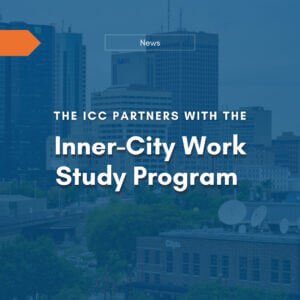
by Gabriel Louër
The Inner-City Work Study program (ICWS) is an initiative managed by the University of Winnipeg to facilitate community development in line with the spirit of reconciliation.
The program, which began in 2015 with the release of the Truth and Reconciliation report, pairs students from diverse backgrounds with local businesses and non-profit organizations with the aim of promoting economic and cultural renewal to communities in need.
“Students gain exposure to the environment that faces the inner-city” says Kerniel Aasland, Program Coordinator for the ICWS, “and in the process they develop skills which are not only valuable to them, but to the communities they work with as well.”
The program is designed with the principles of Truth and Reconciliation in mind. Central to the program, according to the University of Winnipeg, is a commitment to “community practice, citizen mobilization, engagement, empowerment, and reconciliation”
In addition to local communities, businesses and organizations are also able to benefit.
Not only are participating institutions able to meet their operational needs, but at little to no cost to them since the program is fully funded by external sources.
By participating in the program, these institutions foster long-lasting relationships with students and the communities they serve. It is common for students to be offered a long-term position at the end of their program.
Several organizations, including the Indigenous Chamber of Commerce, have successfully participated in the program operated by the university. Over the summer, the ICC welcomed two new interns as part of the ICWS program, with the aim to include another student sometime in the near future.
Given the strong emphasis on the principles of Truth and Reconciliation, the program is ideal for organizations which primarily help to serve Indigenous communities. Yet, although the program is designed with specific principles in mind, the appeal of the ICWS is incredibly broad.
Often, many of the students who participate in ICWS come from non-Indigenous and international backgrounds. The program affords them the opportunity to meet with communities with whom they would not ordinarily interact with.
This has helped bridge the gap that exists between Indigenous and non-Indigenous communities. Overtime, the hope is that the program will continue to expand.
ICC President Renee Greyeyes had to say regarding the program:
“I am deeply honoured to be part of the Inner-City Work Study Program, which embodies the true spirit of reconciliation. This partnership not only allows students to gain valuable insights into Indigenous perspectives but also creates a space where mutual respect and cultural exchange flourish. The relationships nurtured through this program highlight the strength of working together to create meaningful, lasting change for our communities and future generations.”
